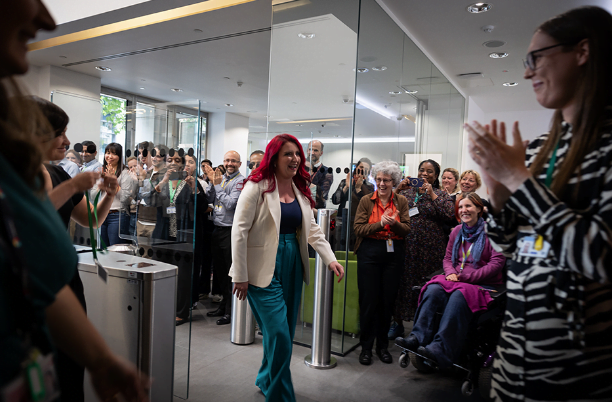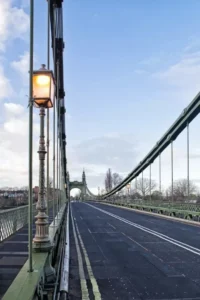New Transport Secretary Louise Haigh has promised to deliver what she’s calling the biggest overhaul to transport in a generation. The Secretary of State says she immediately convened officials to begin work at pace across the department on rail reform, further devolution of bus powers, ensuring infrastructure works for the whole country, and supporting local authorities to fix roads for the long term.
In her first address to DfT staff Haigh set out her five strategic priorities, putting transport at the heart of mission-driven government.
They include:
- improving performance on the railways and driving forward rail reform
- improving bus services and growing usage across the country
- transforming infrastructure to work for the whole country, promoting social mobility and tackling regional inequality
- delivering greener transport
- better integrating transport networks
The Transport Secretary’s first official visit later this week will be focused on plans to deliver better buses in every corner of the country, beginning a round of engagement with Mayors and devolved leaders who will be key delivery partners.
Haigh said DfT would ‘think about infrastructure and services together at every turn’.
In her address to staff, she also said the department would ‘focus relentlessly’ on improving performance on the railways and introduce ‘much-needed rail reform’.
The newly-appointed Rail Minister, Lord Hendy of Richmond Hill CBE will also bring decades of experience to help realise the Government’s ambition of transforming infrastructure and improving public transport to deliver for passengers.
In addition, the Prime Minister has announced the appointment of new ministers at the Department, including Future of Roads Minister Lilian Greenwood MP, Local Transport Minister Simon Lightwood MP, and Aviation, Maritime, and Security Minister Mike Kane MP, but there is no place in the team for former Shadow Roads Minister Bill Esterson.
In response to the publication of the new government’s priorities, Max Sugarman, Chief Executive of Intelligent Transport Systems UK (ITS UK), said: “We are pleased to see the Transport Secretary’s five priorities strongly reflecting the key areas where the transport technology sector can best be utilised to improve the transport network, as set out in the ITS UK Future of Transport Manifesto.
“As the Manifesto highlights, the intelligent transport industry stands ready to work with the Government, whether by improving our rail network through smart ticketing, supporting demand responsive transport bus services, delivering a MaaS Strategy that better integrates the transport system, or providing a greener road network through the gradual roll out of fair and understandable ‘pay as you drive’ scheme – to name but a few of the recommendations.”
























